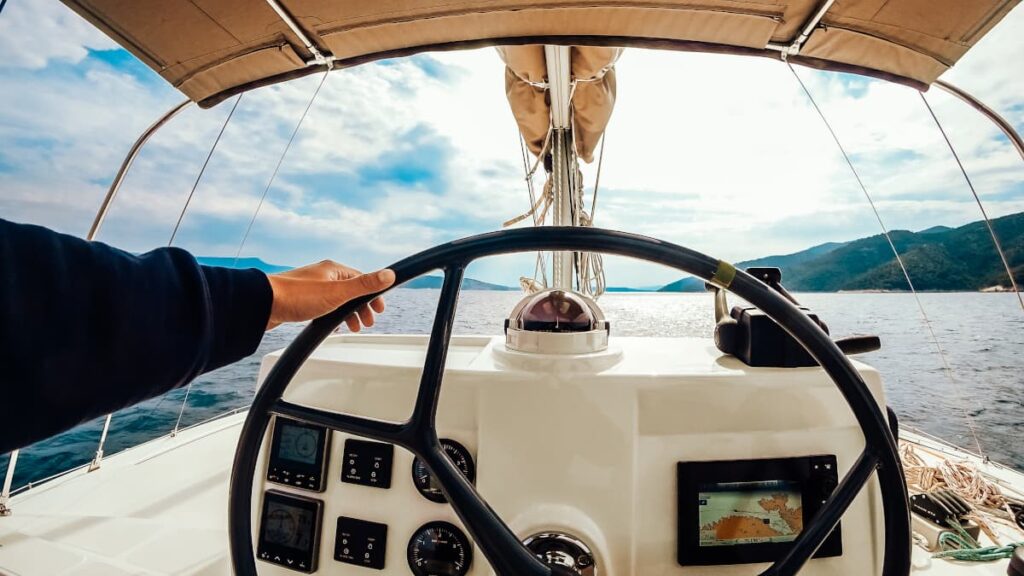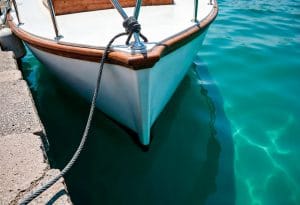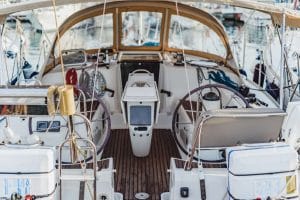He Professional Pleasure Boat Skipper course it's a one more step for all those fans of the nautical world who want to turn their hobby into their profession. In this post we tell you everything you need to know to assess whether this training is a future option for you. Can you come with us?
What is PPER?
The title of Professional Recreational Boat Skipper is designed for those amateurs who already have the title of Yacht Captain and They want to get a professional qualification, which can be obtained by passing the exam of the General Directorate of the Merchant Navy, which consists of 30 multiple choice questions.
Furthermore, it is necessary to obtain the basic maritime safety training certificate, by completing a 70-hour course at an approved nautical school, in which knowledge related to safety and emergencies on board will be acquired.

Powers of the PPER
The PPER title was created in 2011, but it was in 2019 when both the requirements to obtain it and the powers were updated, differentiating between PPER with category 1 and PPER with category 2.
Category 1
The PPER with category 1 allows:
- Work like professional pleasure boat skipper, both motor and sailing, belonging to the 6th and 7th lists.
- With a maximum length of 24 meters.
- At a maximum of 60 miles nautical of the coast.
- With 12 passengers maximum, crew apart.
- Work like practice instructor in the titles Navigation License, PNB and PER.
- Work like pattern in any country in the world (always adhering to its legislation) in recreational boats with the Spanish flag.
If you are interested in knowing all the different boat licenses in this article We tell you everything.
Category 2
In addition to those already mentioned, PPER category 2 allows:
- Move away from the coastline until 150 nautical miles.
- Work like instructor of regulatory practices Short Range Radio Operator – Radio PER.

Requirements to obtain this title
In order to take the PPER exam, the applicant will need to:
- Have 20 years compliments.
- Have the title of Yacht Captain.
- Get over the multiple choice theoretical exam of the General Directorate of the Merchant Navy.
- Have a responsible navigation declaration for 50 days and 2500 miles.
- Get the following certificates:
- Basic training specialty in maritime safety.
- General or restricted SMSSM operator specialty.
- Advanced level specialty in fire fighting.
- Have the certificate of specific health training in force.
- Get over the medical examination of maritime boarding of the Social Institute of the Navy.
Are you interested in: What is the nautical Titulín and what boats can I govern?
Boarding period
To obtain the title, it is necessary prove certain boarding and navigation time, although according to the legislation in force today, a responsible declaration from the interested party is sufficient, so it is not necessary to present legal documents such as the Navigation Book.
In the responsible declaration, whose official format must be requested from the Captaincy or the corresponding training center, must include:
- Which has been navigated with the range skipper or captain.
- What has been done height navigation, despite the fact that the exact definition of what is considered high altitude navigation does not appear in the legal text.
- that have been done voyages of at least 48 hours duration on a voyage basis.
- Which have also been carried out, at least five crossings of more than 60 miles and between different ports.
- That, in total, more than 50 days of navigation or voyages.
- That a minimum distance of 2500 nautical miles.
- The boat registration, without there being an explicit limitation that requires that they be vessels of more than 24 meters in length.
STCW Specialty Certificate
As we have already mentioned, among the requirements to obtain the PPER, the obligation to be in possession of the following stands out: certificates:
- Prove a boarding period of 2 years (through the boarding book or work contracts)
- Health training, whether initial or advanced.
- Restricted GMDSS Radio Operator.
- Basic training in security and emergencies.
PPER Agenda
Once you have passed the PER and the Yacht Skipper and Yacht Captain exams, the syllabus necessary to obtain the PPER is not complicated, although it may be less enjoyable, since It is based on Maritime Law.
It is necessary to take into account that the syllabus is defined in each call, so when studying it is It is essential to check that the legislation is completely up to date.
Among other rules, one must master the Law 27/1992 on State Ports and the Merchant Navy, as well as the royal decrees about the Maritime Administration, Captaincies and Maritime Districts or the Regulation on the Clearance of Vessels, among others.




